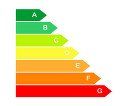My Guide To Understanding DEA (Domestic Energy Assessor) Course Fees: A Comprehensive Guide
Introduction
If you're considering a career as a Domestic Energy Assessor (DEA), it's essential to understand the various costs involved in obtaining the necessary qualifications. The DEA course fees cover training, certification, and accreditation, enabling you to assess the energy efficiency of residential properties. In this article, we'll explore the components of DEA course fees, their importance, and factors to consider when choosing a training provider, including course costs, duration, and portfolio requirements.
- The Importance of DEA Training and Certification:
- Before delving into the specifics of DEA course fees, let's emphasise the significance of acquiring the necessary training and certification. As a DEA, you play a crucial role in assessing and providing Energy Performance Certificates (EPCs) for residential properties. EPCs contribute to reducing carbon emissions and improving energy efficiency, making them essential for homeowners, landlords, and potential buyers.
Understanding DEA Course Fees:
DEA course fees typically encompass the following components:
a. Training Materials: The cost of study materials, including textbooks, manuals, and access to online learning platforms, is often included in the course fees. These resources equip you with the knowledge required to perform accurate energy assessments.
b. Classroom or Online Training: DEA courses are offered in various formats, including traditional classroom-based sessions and online programs. The course fees cover the cost of attending these training sessions, which are conducted by qualified instructors or delivered through interactive e-learning platforms. Face-to-face teaching time can range from two to five days, depending on the course provider and format.
c. Assessment and Examinations: To become a certified DEA, you must pass the necessary assessments and examinations. These evaluations test your understanding of energy assessment methodologies, regulations, and practical skills. The fees cover the costs associated with these assessments.
d. Certification and Accreditation: Upon successfully completing the course and passing the assessments, you'll receive a certification as a qualified DEA. Course fees often include the administrative costs of issuing this certification, which verifies your competence in assessing domestic energy performance.
Factors Affecting DEA Course Fees:
Several factors influence the cost of DEA training courses. These include:
a. Training Provider: Different training providers may offer varying course fees based on factors such as their reputation, expertise, and training delivery methods. It's essential to choose a reputable provider that offers high-quality training to ensure you receive the best value for your investment. DEA courses can range in cost from £800 to £2000.
b. Course Duration: The length of the course can impact the overall fees. Courses that require a longer duration of face-to-face teaching time may have higher fees due to the additional training and resources provided. Face-to-face teaching time can range from two to five days.
c. Additional Support: Some training providers offer additional support services such as mentoring, revision sessions, or career guidance. These value-added services may be reflected in the course fees.
d. Location: Course fees can also vary based on your geographical location. Training providers in urban areas with high demand may have different fee structures compared to those in rural areas.
Portfolio Requirements:
In addition to attending the training sessions and passing assessments, candidates are typically required to complete a portfolio of work. This portfolio showcases your practical application of energy assessment skills and is submitted as part of the certification process. The portfolio may include sample assessments, case studies, and evidence of professional development.
Choosing the Right DEA Course:
When selecting a DEA course, it's essential to consider the following factors:
a. Accreditation and Recognition: Ensure that the course you choose is accredited by relevant industry bodies, such as the National Energy Services (NES) or the Energy Performance Certificate Register (EPC Register). Accreditation ensures that your certification is widely recognised and accepted.
b. Course Content and Quality: Evaluate the course curriculum and assess whether it covers all the necessary topics and practical skills required to become a competent DEA. Look for training providers with a track record of delivering high-quality training.
c. Reviews and Testimonials: Research online reviews and testimonials from previous course participants to gain insights into the training provider's reputation and the effectiveness of their courses.
d. Cost-Effectiveness: While it's crucial not to compromise on quality, consider the overall value for money offered by different training providers. Compare course fees, inclusions, and additional benefits to find the most cost-effective option.
Conclusion:
Obtaining the necessary qualifications as a Domestic Energy Assessor is an important step towards a rewarding career in assessing residential energy performance. Understanding the components of DEA course fees and considering factors such as course costs, duration, and portfolio requirements will help you make an informed decision when choosing a training provider. Invest in high-quality training to ensure you acquire the knowledge and skills needed to excel in this growing field and contribute to a more energy-efficient future.





